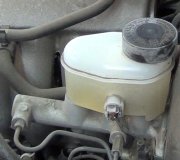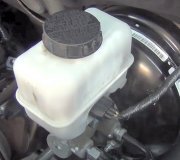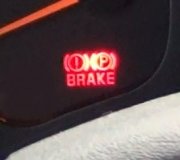First you have to determine what caused the original failure. It could be as simple as a piston got pushed into a front caliper, and you had to run it back out by pushing the brake pedal. The pedal should never be pushed over half way to the floor. Crud and corrosion build up in the lower halves of the bores where the pistons do not normally travel. Pushing the pedal over half way runs the rubber lip seals over that crud and can rip them. That applies to any master cylinder more than about a year old, but not your new one.
Did you bench-bleed the new master cylinder? What seals are you referring to? Does your car have anti-lock brakes? If not, there is a simple trick when replacing the master cylinder that makes bleeding at the wheels unnecessary. GM front-wheel-drive cars have a valve in the master cylinder that trips and blocks two ports if you try to pedal-bleed with a helper. If air got in two of the lines, it will never bleed out if that valve got tripped. Gravity-bleeding is safer and will not trip the valve.
Saturday, January 6th, 2018 AT 1:41 PM



